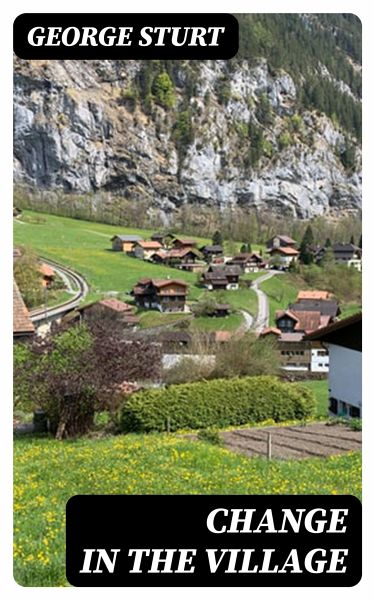
Change in the Village (eBook, ePUB)
Versandkostenfrei!
Sofort per Download lieferbar
1,99 €
inkl. MwSt.
Weitere Ausgaben:

PAYBACK Punkte
0 °P sammeln!
In "Change in the Village," George Sturt navigates the delicate landscape of rural life during the early 20th century, capturing the transformations that accompany modernization. With a keen eye for detail and a lyrical prose style, Sturt evokes the shifting dynamics of village life, interweaving personal narratives with broader social and economic changes. This semi-autobiographical work stands as a poignant reflection on the tension between tradition and progress, set against the backdrop of an England on the cusp of profound change. Sturt's adept use of imagery and local dialect immerses re...
In "Change in the Village," George Sturt navigates the delicate landscape of rural life during the early 20th century, capturing the transformations that accompany modernization. With a keen eye for detail and a lyrical prose style, Sturt evokes the shifting dynamics of village life, interweaving personal narratives with broader social and economic changes. This semi-autobiographical work stands as a poignant reflection on the tension between tradition and progress, set against the backdrop of an England on the cusp of profound change. Sturt's adept use of imagery and local dialect immerses readers in the authentic spirit of his idyllic yet shifting rural community. George Sturt, born in 1863, drew from his own experiences as a farmer's son and village resident, providing an authentic voice to the narratives he presents. His intimate knowledge of local customs and the socio-economic challenges faced by villagers informs the text, allowing readers to grasp the emotional weight of the changes he meticulously records. Sturt's literary career reflects a broader literary movement that sought to capture the realities of English rural life, and his writing is often situated within the context of early 20th-century rural sociology. I highly recommend "Change in the Village" to readers interested in the intersection of literature, sociology, and history. Sturt's rich portrayal of village life invites reflection on the broader implications of change that resonate even today, making it an essential read for anyone exploring the nuances of community identity and heritage.
Dieser Download kann aus rechtlichen Gründen nur mit Rechnungsadresse in A, B, BG, CY, CZ, D, DK, EW, E, FIN, F, GR, H, IRL, I, LT, L, LR, M, NL, PL, P, R, S, SLO, SK ausgeliefert werden.













